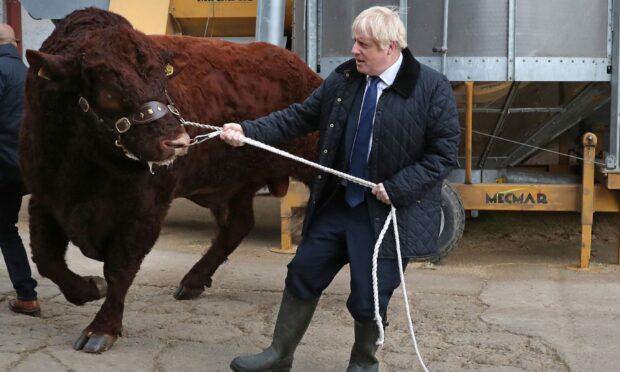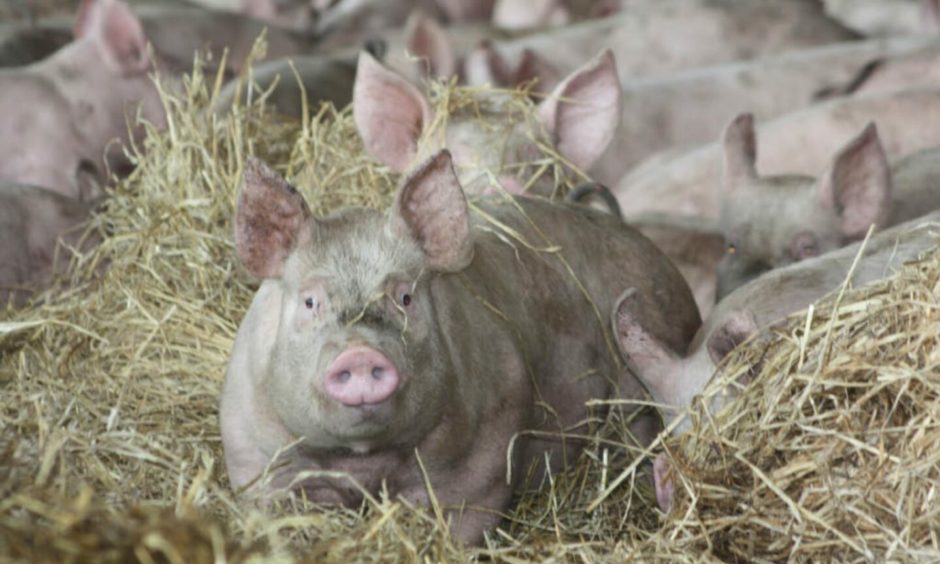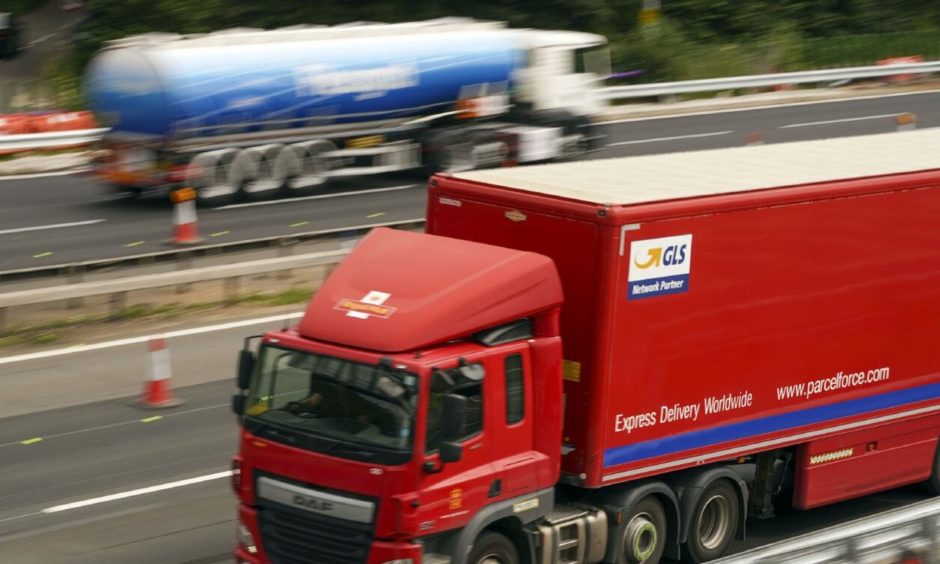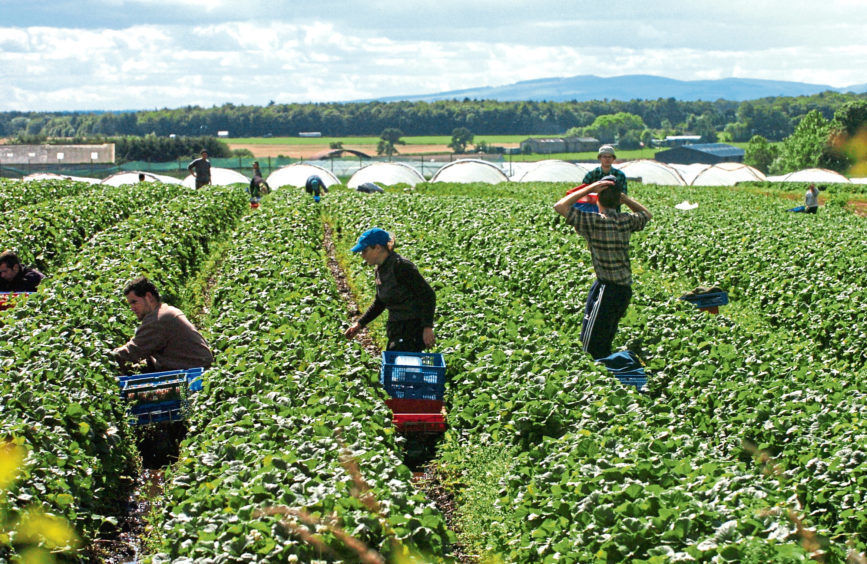Blinkered by Brexit, Boris Johnson seems determined to let the British farming industry collapse.
The prime minister has shocked farmers – many of whom have propped up his party with their votes – by his seeming lack of regard for the pig sector.
The plight of the pig farming industry, and most of the agri-food supply chain, has been well-documented in recent weeks.
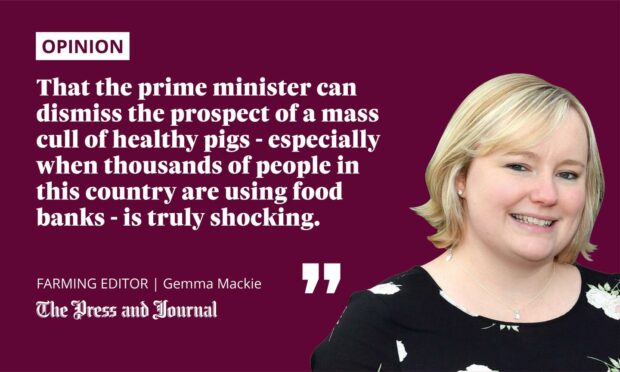
HGV driver shortages have been blamed for empty supermarket shelves and petrol stations running dry, as well as the subsequent panic buying.
And a lack of staff in abattoirs and processing plants has led to slaughter-ready animals being backed up on farms.
First there were warnings of a potential shortage of pigs in blankets – not ideal in the run-up to Christmas, but hardly catastrophic. This has escalated, with the National Pig Association now advising that more than 120,000 pigs face being destroyed, with some farmers already starting the cull.
Meanwhile, a lack of labour has led to thousands of pounds worth of vegetables rotting in fields. Red meat levy body Quality Meat Scotland has cautioned of challenges for the beef and sheep sector as supplies of animals going for slaughter are set to increase ahead of Christmas.
There have also been reports of some dairy farmers having to pour milk down the drain, and I don’t doubt tattie farmers are questioning whether there will be enough drivers to get their produce onto supermarket shelves.
Too little, too late
The UK Government’s response to most of these issues has been to tell the agri-food industry to “invest in the domestic workforce”. Their attempt at issuing 10,500 short-term visas for HGV lorry drivers and poultry workers was too little, too late.
It’s hard to imagine why any European worker would want to come to bail us out for three months before being sent back home on Christmas Eve.
Boris’s recent media comments have left farmers, and no doubt bystanders, with their jaws on the ground and their fists clenched.
When quizzed about the pig crisis on BBC One’s Andrew Marr Show, the prime minister said: “I hate to break it to you but I am afraid our food processing industry does involve the killing of a lot of animals.”
And when pressed about the issue on Times Radio, he repeated those comments, telling the presenter that when he ate bacon sandwiches, the “pigs were not alive”.
That the man can dismiss the prospect of a mass cull of healthy pigs – especially when thousands of people in this country are using food banks – is truly shocking.
There are not enough British workers to keep the agri-food industry going
The Tories’ attempt to stop uncontrolled immigration, as they like to call it, and create an economy of high wages will come at an astronomical cost.
There are simply not enough British people to fill the workforce required to keep our agri-food industry in operation.
Until Boris backs down on Brexit and adopts a more pragmatic approach to immigration, I believe many farmers will go out of business and our country will lose a precious jewel in its crown.
Food, and home-grown food as the Covid-19 crisis has shown, is vital to the prosperity of any nation.
Gemma Mackie is farming editor at The Press & Journal. She lives on her husband’s arable and beef farm in Angus
